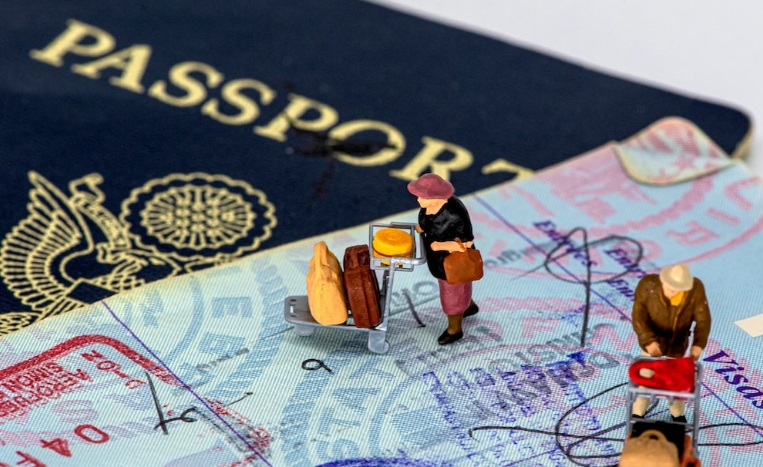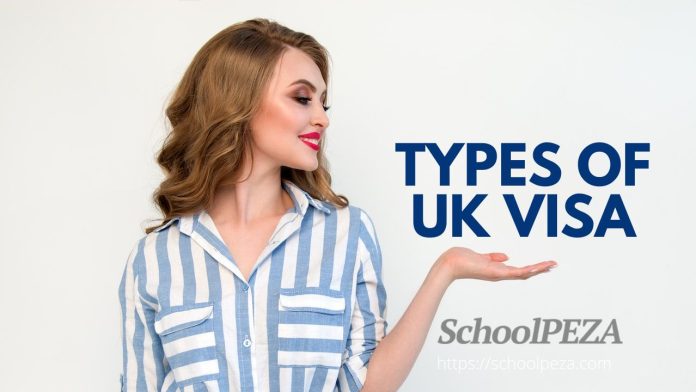If you’re a student who wants to study in the UK, there’s a better chance you’d want to know everything about the different types of UK visa. Don’t worry, in this quick article, I’ll give you some insights.
As a travel enthusiast, I understand how traveling and education can be one of the most exciting experiences of one’s life. However, traveling to a new country to study can be a daunting experience, especially when it comes to visas.
The UK, being one of the most popular travel destinations in the world, offers a wide range of visa options for travelers. In this article, we will explore the major types of UK visas and help you find the one that suits you best.
What Is A Visa?
A visa is a legal document issued by a country that allows a foreign national to enter, leave, or stay in the country for a specific period. The UK has different types of visas, and each visa is designed for a specific purpose. The type of visa you need depends on the reason for your visit and the duration of your stay.
The Different Types of UK Visa – An Overview
There are several types of UK visas, and it is essential to understand the purpose of each visa before applying. Check out the following various types of UK visas:
1. Visitor Visas
The visitor visa is an entry clearance that allows a foreign national to visit the UK for leisure, business, or medical reasons. Visitor visas are further categorized into different types, depending on the duration and purpose of your visit.
The Standard Visitor Visa is suitable for short-term visits, while the long-term Visitor Visa is suitable for those who frequently visit the UK for extended periods.
2. Study Visa
The United Kingdom is home to some of the top universities and educational institutions in the world. The study visa, also known as the Tier 4 visa, is designed for students who intend to study in the UK. The Tier 4 visa allows students to study at a UK educational institution for a specific period.
3. Work Visas
The UK has a strong economy and offers many employment opportunities to foreign nationals. The work visa, also known as the Tier 2 visa, is designed for foreign nationals who have a job offer from a UK employer. The Tier 2 visa allows foreign nationals to work in the UK for a specific period.
4. Family Visas
The family visa is designed for individuals who want to join their family members in the UK. This visa is further categorized into different types, depending on the relationship between the applicant and the UK resident.
The Spouse Visa is suitable for individuals who are married to a UK resident, while the Parent Visa is suitable for individuals whose children are settled in the UK.
5. Business Visas
The business visa, also known as the Tier 1 visa, is designed for entrepreneurs, investors, and high-net-worth individuals who want to set up or invest in a business in the UK. The Tier 1 visa offers several categories, such as the Investor Visa, Entrepreneur Visa, and Graduate Entrepreneur Visa.

Other Types of Visas
Apart from the visas mentioned above, there are several other types of UK visas, such as the Tourism Visa, Marriage Visa, Domestic Worker Visa, and High Potential Individual Visa. How about we get an overview of these various types of UK visas?
Also Read: 7 Differences Between Canadian Territories and Provinces
6. Tourism Visa
The Tourism Visa is designed for individuals who want to visit the UK for tourism purposes. This visa is suitable for those who want to explore the UK’s culture, history, and landmarks. The Tourism Visa allows a stay of up to six months.
7. Marriage Visa
The Marriage Visa is designed for individuals who want to join their partner in the UK. This visa is suitable for those who are not married but intend to get married in the UK. The Marriage Visa allows a stay of up to six months.
8. Domestic Worker Visa
The Domestic Worker Visa is designed for individuals who want to work as a domestic worker in a UK household. This visa is suitable for those who have worked for their employer for at least one year outside the UK. The Domestic Worker Visa allows a stay of up to six months.
9. High Potential Individual Visa
The High Potential Individual Visa is designed for individuals who have exceptional talent and skills in the fields of science, arts, engineering, humanities, and digital technology. This visa is suitable for those who want to work in the UK and contribute to the UK’s economy.
Also Read: 7 Top UK Scholarships for Nigerian Students
Factors to Consider When Choosing a UK Visa
Choosing the right UK visa is crucial to ensure a hassle-free experience. The following are some factors to consider when choosing a UK visa:
- Purpose of Visit
The purpose of your visit to the UK determines the type of visa you need. If you are traveling for tourism, you need a Tourism Visa, while if you are traveling for work, you need a Work Visa.
- Duration of Stay
The duration of your stay in the UK also determines the type of visa you need. If you are traveling for a short period, you need a Standard Visitor Visa, while if you are traveling for an extended period, you need a Long-term Visitor Visa.
- Eligibility Criteria
Each visa has different eligibility criteria, and it is essential to ensure that you meet the requirements before applying.
- Cost
The cost of the visa varies depending on the type of visa and the duration of your stay. It is essential to consider the cost of the visa when choosing the right visa.
How to Apply for a UK Visa
The application process for a UK visa can be done online or in-person at a visa application center. The following are the steps to apply for a UK visa:
- Step 1: Choose the Right Visa
Choose the right visa based on the purpose of your visit, duration of your stay, and eligibility criteria.
- Step 2: Gather the Required Documents
Gather all the required documents, such as your passport, visa application form, and supporting documents.
- Step 3: Apply Online or In-person
Apply online or in-person at a visa application center.
- Step 4: Pay the Application Fee
Pay the application fee, which varies depending on the type of visa and the duration of your stay.
- Step 5: Attend a Biometric Appointment
Attend a biometric appointment to provide your fingerprints and photograph.
- Step 6: Wait for the Visa Decision
Wait for the visa decision, which can take up to three weeks.
While applying for any of the different type of UK visa, you should avoid some common mistakes, as will be highlighted below:

Common UK Visa Application Mistakes to Avoid
The UK visa application process can be complicated, and it is essential to avoid common mistakes that can lead to visa rejection. The following are some common UK visa application mistakes to avoid:
- Incomplete Application Form
Ensure that you fill the application form correctly and provide all the required information.
- Incorrect Supporting Documents
Provide the correct supporting documents, such as bank statements, employment letters, and travel itineraries.
- Insufficient Funds
Ensure that you have sufficient funds to cover your travel and living expenses in the UK.
- False Information
Do not provide false information in your visa application, as it can lead to visa rejection and future visa bans.
Conclusion
In conclusion, the UK offers a wide range of visa options for travelers, and it is essential to choose the right visa based on the purpose of your visit, duration of your stay, and eligibility criteria. Applying for a UK visa can be a daunting experience, but by following the correct steps and avoiding common mistakes, you can ensure a hassle-free experience. If you are still unsure about which UK visa to choose, seek advice from a visa consultant or immigration lawyer.





